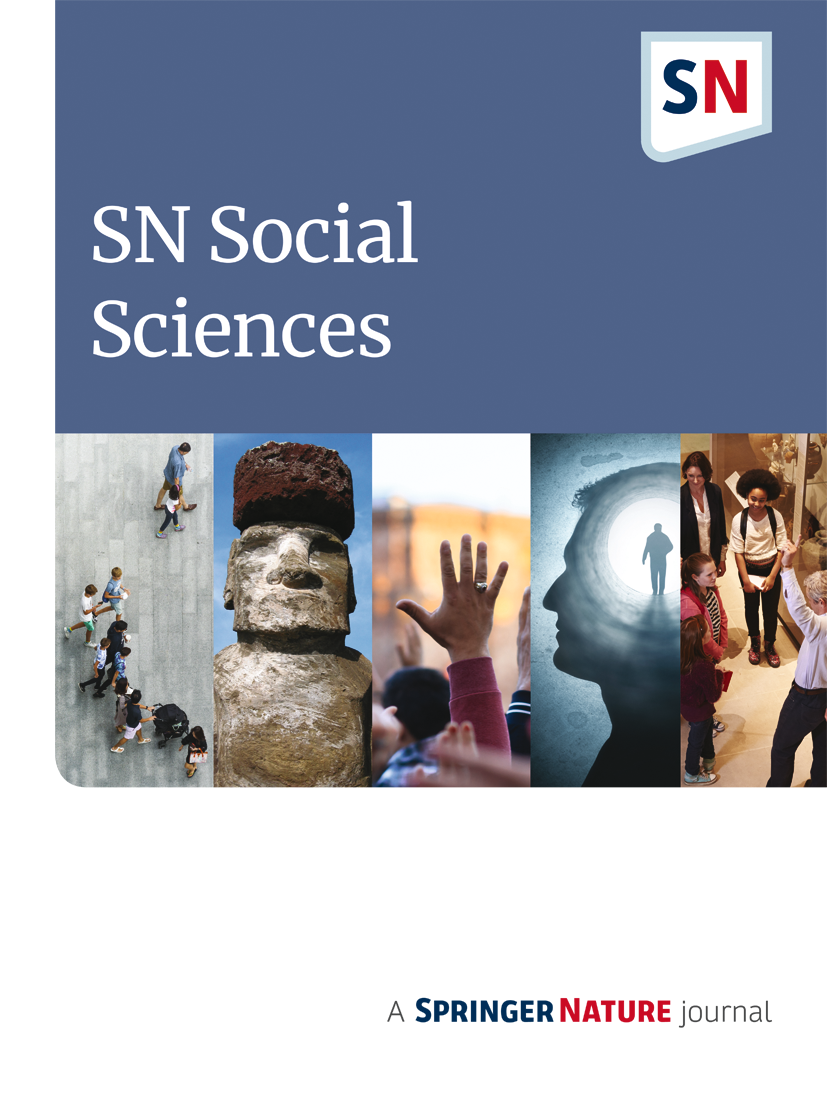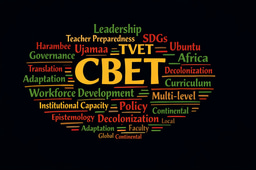Intergenerational and technological changes in mafia-type groups: a transcultural research agenda to study the ‘ndrangheta and its mobility
Published in Social Sciences

When we think about organized crime, images of shadowy figures and dramatic confrontations often come to mind. When I think about it, I picture the image above - the Aspromonte in Calabria, its beauty and its calm (notwithstanding a difficult past...).
Indeed, the reality is far more complex, especially when it comes to mafia organizations like the ‘ndrangheta, originated in Calabria, Italy. This mafia group has not only maintained its influence in its homeland but has also successfully expanded its operations across the globe. And yet, as time goes by and the old guard of the clans is replaced by new generations, it is particularly difficult to assess to what extent tradition and preservation of orthodox values in the mafia will be trumped by innovation and calls for new values.
The Roots of the ‘Ndrangheta
The ‘ndrangheta is not just a criminal organization; it is a complex social structure deeply rooted in the cultural and familial ties of Calabria. At its core, the ‘ndrangheta consists of family clans, known as ‘ndrine, which often operate like dynasties. These clans not only engage in illegal activities but also exert significant influence over local politics and economies. Their power is built on a reputation for violence and intimidation, as well as social capital within their communities.
As the ‘ndrangheta expanded beyond Calabria, it began to adapt to its new environments. This adaptability is a key characteristic of the organization, allowing it to thrive in various cultural contexts, from the bustling streets of Toronto to the coastal cities of Australia. But how does a mafia group maintain its identity, generation after generation, while also evolving in response to different cultural landscapes? An answer, as Anita Lavorgna (University of Bologna) and I argue in our latest paper, might lie in the concept of transculturation.
This paper is for out of my decade-long interest in "chasing the 'ndrangheta", specifically as I am a mobile Calabrian myself and I see on myself the effects that migration has on the sense of self, the sense of culture, the sense of belonging. The question at the basis of this paper is: if I, as a Calabrian migrant, went through all these phases to define who I am abroad, and I know that are migrants from my region also went to similar, yet diverse processes, what is happening in the minds and lives of mafia members, who are too migrants, in terms of their identity abroad? And how does that affect their offending behaviour?
The Concept of Transculturation
Transculturation refers to the process through which cultures interact, influence each other, and evolve over time in consideration also of power dynamics across dominant and marginal groups in a given context. For the ‘ndrangheta, this means that as its members migrate and settle in new countries, they not only bring their customs and traditions with them but also adapt to the cultural norms of their host societies, by which the Calabrian communities were often marginalised. This blending of cultures can lead to significant transformations within the mafia organization itself.
For example, younger generations of ‘ndrangheta members - as it's normal - often embrace new technologies and communication methods, which can impact how they conduct their operations. As traditional means of communication become less secure, the use of encrypted messaging apps and social media has become increasingly prevalent among mafia members. This shift not only enhances their ability to coordinate illicit activities across borders but also reflects a broader cultural change within the organization, which can be read through transculturation.
The Role of Technology in Mafia Mobility
The digital age has ushered in a new era for organized crime, and the ‘ndrangheta is no exception. With the rise of the internet and mobile technology, mafia groups have found new ways to communicate, plan, and execute their criminal enterprises. This technological evolution has profound implications for how the ‘ndrangheta operates, particularly in its interactions with both local communities and law enforcement.
One illuminating case study is Operation Eureka, a large-scale law enforcement operation targeting the ‘ndrangheta. During this operation, authorities uncovered extensive use of encrypted communication, via the platform Encrochat, among mafia members involved in drug trafficking. The ability to communicate securely allowed these groups to coordinate their activities while evading detection. This reliance on technology highlights a significant intergenerational shift within the ‘ndrangheta, as younger members, more attuned to digital landscapes, increasingly take on leadership roles.
However, this technological shift is not without its challenges. Older members of the ‘ndrangheta often express skepticism about new technologies, fearing that they could compromise the secrecy that is vital to their operations. This generational tension reflects a broader struggle within the organization as it grapples with the necessity of innovation while trying to preserve its traditional values and practices.
The Impact on Communities
The mobility of the ‘ndrangheta has significant implications for the communities in which it operates. As the organization establishes itself or its activities in various countries, it often disrupts the lives of local populations, particularly its own immigrant communities. The ‘ndrangheta's presence can lead to the stigmatization of entire ethnic groups, as law enforcement and the public may erroneously associate crime with specific nationalities or cultures.
Moreover, the cultural transformations that occur within these diaspora communities can be profound. As families navigate their identities in a new context, they may find themselves caught between the traditions of their homeland and the realities of their host society. This struggle for identity can lead to a complex interplay of cultural pride and association with organized crime, which further complicates the social dynamics within these communities.
Making Sense of Mobility and Identity
Understanding the mobility of the ‘ndrangheta requires a nuanced perspective that considers both the cultural and technological factors at play. As these mafia groups expand their reach, they do not simply replicate their operations from Calabria; they adapt and evolve in response to the complexities of their new environments. This adaptability is a testament to the resilience of the ‘ndrangheta but also poses significant challenges for law enforcement and policymakers.
One critical area of exploration is how the ‘ndrangheta negotiates its identity in multicultural contexts. As members of the organization interact with diverse communities, they must navigate the delicate balance between maintaining their cultural heritage and assimilating into the dominant culture. This negotiation process can result in the emergence of hybrid identities, where individuals draw from both their Calabrian roots and the cultures of their host countries. Here is the space for a transcultural agenda in mafia mobility studies.
The Future of Research on the ‘Ndrangheta
The study of the ‘ndrangheta and its mobility is an ongoing endeavor that requires an interdisciplinary approach. By combining insights from cultural studies, criminology, and migration studies, researchers can better understand the complexities of organized crime in a globalized world. Future research should focus on the ways in which technological advancements continue to shape mafia operations and how these changes impact the communities they infiltrate.
Moreover, there is a need to critically examine the narratives surrounding organized crime and the potential consequences of labeling entire communities based on the actions of a few. By fostering a more nuanced understanding of the ‘ndrangheta, we can contribute to a broader dialogue about crime, culture, and identity in our increasingly interconnected world.
Conclusion: A Complex Narrative
The story of the ‘ndrangheta is one of resilience, adaptation, and complexity. As this mafia organization continues to navigate the challenges of mobility and cultural transformation, it serves as a compelling case study for understanding the intersections of crime, culture, and technology. By exploring the nuanced dynamics of the ‘ndrangheta, we can gain valuable insights into the broader phenomena of organized crime and its impact on society.
In a world where borders are increasingly blurred, and cultures are constantly evolving, the narrative of the ‘ndrangheta reminds us of the importance of looking beyond stereotypes and simplistic explanations. It is a reminder that behind every criminal organization lies a web of human stories, cultural struggles, and the quest for identity in an ever-changing landscape. As we continue to investigate and understand these complexities, we can work towards more informed discussions about crime, culture, and the communities affected by both.
Follow the Topic
-
SN Social Sciences

This is a multi- and interdisciplinary journal serving the Social Sciences community.
Related Collections
With Collections, you can get published faster and increase your visibility.
- SDG 16 - Promote peaceful and inclusive societies for sustainable development, provide access to justice for all and build effective, accountable and inclusive institutions at all levels
We are calling for articles to our new Collection on Peace, Justice and Strong Institutions, in support of the UN Sustainable Development Goal: SDG 16. This collection creates a cross-disciplinary space for researchers and stakeholders working across various disciplines to address this significant global issue. We bring together scholarship and policy that focuses on the integral role of peace, justice and strong institutions in society.
Goal 16 is about promoting peaceful and inclusive societies, providing access to justice for all and building effective, accountable and inclusive institutions at all levels. People everywhere should be free of fear from all forms of violence and feel safe as they go about their lives whatever their ethnicity, faith or sexual orientation. Governments, civil society and communities need to work together to find lasting solutions to conflict and insecurity. Strengthening the rule of law and promoting human rights is key to this process, as is reducing the flow of illicit arms, combating corruption, and ensuring inclusive participation at all times.
We are welcoming a range of perspectives including theoretical, methodological, quantitative and qualitative studies. Original Research and Review Papers are accepted. We are specifically interested in research that advances understanding on:
- Significantly reducing all forms of violence and related death rates everywhere
- Ending abuse, exploitation, trafficking and all forms of violence against and torture of children
- Promoting the rule of law at the national and international levels and ensure equal access to justice for all
- By 2030, the significant reduction of illicit financial and arms flows, strengthening the recovery and return of stolen assets and combatting all forms of organized crime
- The substantial reduction of corruption and bribery in all their forms
- Developing effective, accountable and transparent institutions at all levels
- Ensuring responsive, inclusive, participatory and representative decision-making at all levels
- Broadening and strengthening the participation of developing countries in the institutions of global governance
- By 2030, the provision of legal identity for all, including birth registration
- Ensuring public access to information and protect fundamental freedoms, in accordance with national legislation and international agreements
- Strengthening relevant national institutions, including through international cooperation, for building capacity at all levels, in particular in developing countries, to prevent violence and combat terrorism and crime
- The promotion and enforcement of non-discriminatory laws and policies for sustainable development
We are interested to hear your ideas for short commentary or a collection of articles, please contact the journal of your choice directly to discuss this before submitting.
Submission Procedure:
Submission is possible to one of the participating journals on the right, please select TC: SDG16 - Peace, justice and strong institutions in the electronic submission portal. Accepted articles will be published in the respective journal, as well as highlighted on the Collection page.
Publishing Model: Hybrid
Deadline: Dec 31, 2030
- SDG 11 - Make cities and human settlements inclusive, safe, resilient and sustainable
We are calling for articles to our new Collection on Sustainable cities and communities, in support of the UN Sustainable Development Goal: SDG 11. This collection creates a cross-disciplinary space for researchers and stakeholders working across various disciplines to address this significant global issue. We bring together scholarship and policy that makes a difference to the sustainability of cities and communities.
The aim of Goal 11 is to make cities and human settlements inclusive, safe, resilient and sustainable. The world’s population reached 8 billion in 2022 with over half living in urban areas. This figure is only expected to rise, with 70 per cent of people expected to live in cities by 2050. However many of these cities are not ready for this rapid urbanisation and urban sprawl, air pollution and limited open public spaces persist in cities. Sustainable development cannot be achieved without significantly transforming the way urban spaces are built and managed.
We are welcoming a range of perspectives including theoretical, methodological, quantitative and qualitative studies. Original Research and Review Papers are accepted. We are particularly interested in research that centers on the following topics:
By 2030, ensuring access for all to adequate, safe and affordable housing and basic services and upgrade slums Providing access to safe, affordable, accessible and sustainable transport systems for all, improving road safety, notably by expanding public transport, with special attention to the needs of those in vulnerable situations, women, children, persons with disabilities and older persons
- The enhancement of inclusive and sustainable urbanization and capacity for participatory, integrated and sustainable human settlement planning and management in all countries
- Strengthening efforts to protect and safeguard the world’s cultural and natural heritage
- By 2030, a significant reduction in the number of deaths and the number of people affected and substantially decrease the direct economic losses relative to global gross domestic product caused by disasters, including water-related disasters, with a focus on protecting the poor and people in vulnerable situations
- A reduction in the adverse per capita environmental impact of cities, in particular air quality and waste management
- By 2030, the provision of universal access to safe, inclusive and accessible, green and public spaces, in particular for women and children, older persons and persons with disabilities
- The support of positive economic, social and environmental links between urban, peri-urban and rural areas by strengthening national and regional development planning
- Substantially increasing the number of cities and human settlements adopting and implementing integrated policies and plans towards inclusion, resource efficiency, mitigation and adaptation to climate change and resilience to disasters.
- The support of least developed countries, including through financial and technical assistance, in building sustainable and resilient buildings utilizing local materials
We are interested to hear your ideas for short commentary or a collection of articles, please contact the journal of your choice directly to discuss this before submitting.
Submission Procedure:
Submission is possible to one of the participating journals on the right, please select TC: SDG11 - Sustainable cities and communities in the electronic submission portal. Accepted articles will be published in the respective journal, as well as highlighted on the Collection page.
Publishing Model: Hybrid
Deadline: Dec 31, 2030






Please sign in or register for FREE
If you are a registered user on Research Communities by Springer Nature, please sign in